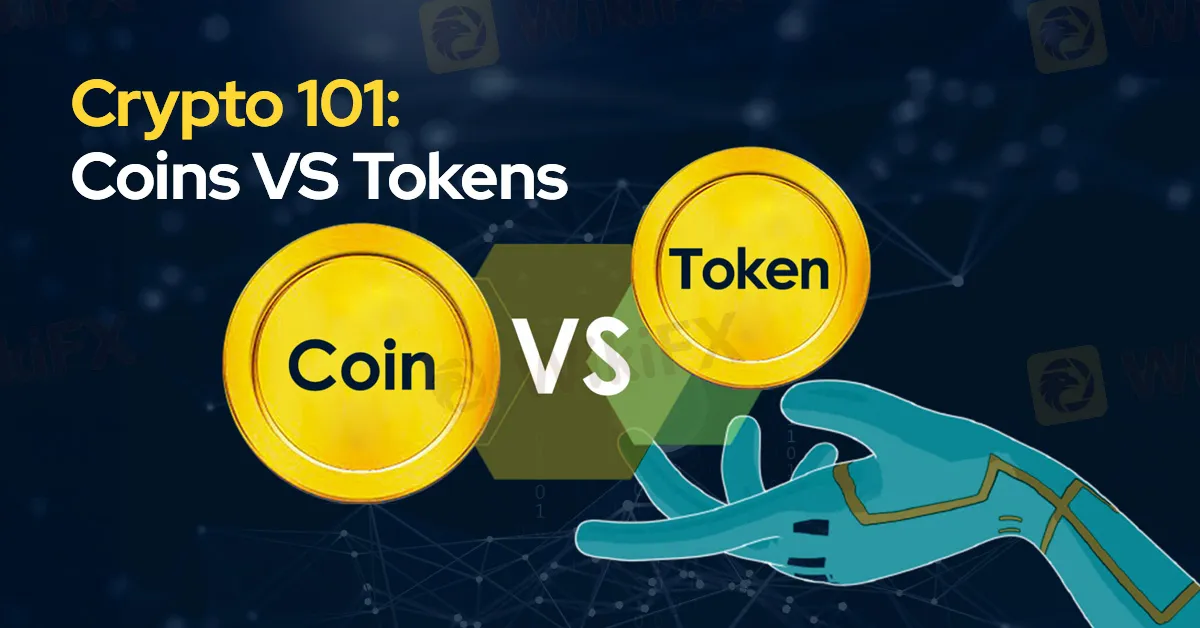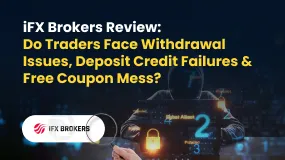简体中文
繁體中文
English
Pусский
日本語
ภาษาไทย
Tiếng Việt
Bahasa Indonesia
Español
हिन्दी
Filippiiniläinen
Français
Deutsch
Português
Türkçe
한국어
العربية
Crypto 101: Coins vs Tokens
Abstract:For those new to the world of cryptocurrency, terms like "coin" and "token" may seem interchangeable. However, understanding the distinction between these two digital assets is crucial for navigating the crypto landscape. Both coins and tokens serve as integral components of blockchain ecosystems, yet they differ in their functionalities, use cases, and the technologies underpinning them.

For those new to the world of cryptocurrency, terms like “coin” and “token” may seem interchangeable. However, understanding the distinction between these two digital assets is crucial for navigating the crypto landscape. Both coins and tokens serve as integral components of blockchain ecosystems, yet they differ in their functionalities, use cases, and the technologies underpinning them.

Coins are native to their respective blockchains and function primarily as a digital currency. Bitcoin, for example, operates on its own blockchain, and its primary purpose is to act as a decentralised peer-to-peer payment system. Similarly, Ether (ETH) is the native coin of the Ethereum blockchain, designed to power smart contracts and decentralised applications (dApps).
A defining feature of coins is their ability to serve as a medium of exchange, a store of value, and, in some cases, a unit of account. Their primary function often mirrors that of traditional currency, albeit in a decentralised form. Coins are typically used for transactions, mining rewards, and staking, depending on the blockchain's consensus mechanism.
Moreover, coins are intrinsic to the security and operation of their blockchains. For instance, miners or validators receive coins as rewards for confirming transactions and maintaining the network's integrity.

Tokens, on the other hand, are built on existing blockchains and do not have their own independent networks. For instance, most tokens are created on platforms like Ethereum, using standards such as ERC-20 or ERC-721. Unlike coins, tokens represent assets or utilities rather than acting purely as a medium of exchange.
Tokens can be categorised into various types, including:
- Utility Tokens: These provide access to specific services or features within a blockchain ecosystem. For example, Filecoin tokens allow users to pay for decentralised storage services.
- Security Tokens: Represent ownership in an underlying asset, such as stocks or real estate, and are subject to regulatory oversight.
- Non-Fungible Tokens (NFTs): Unique tokens that represent ownership of a specific digital or physical item, such as art, music, or virtual real estate.
The creation of tokens is more accessible than building a coin since tokens rely on pre-existing blockchain infrastructure. This simplicity has contributed to the proliferation of tokens in decentralised finance (DeFi) projects, initial coin offerings (ICOs), and gaming platforms.

For traders and investors, understanding the distinction between coins and tokens can help clarify the value proposition of different crypto assets. Coins often signify a long-term investment in the success of a blockchain ecosystem, while tokens can represent a more speculative interest in specific projects or applications.
Additionally, the use cases for tokens and coins differ significantly. While coins like Bitcoin are primarily used for transferring value, tokens often have specialised functionalities tied to the ecosystem they operate in. Recognising these differences can guide strategic decisions, whether youre diversifying a portfolio or evaluating a new project.
In summary, coins and tokens are essential components of the cryptocurrency ecosystem, each playing a unique role. For budding traders, understanding these differences is the first step toward making informed decisions in a rapidly evolving market. By grasping their functionalities and potential applications, you can navigate the crypto space with greater confidence and clarity.

Disclaimer:
The views in this article only represent the author's personal views, and do not constitute investment advice on this platform. This platform does not guarantee the accuracy, completeness and timeliness of the information in the article, and will not be liable for any loss caused by the use of or reliance on the information in the article.
Read more

Seaprimecapitals Withdrawal Problems: A Complete Guide to Risks and User Experiences
Worries about Seaprimecapitals withdrawal problems and possible Seaprimecapitals withdrawal delay are important for any trader. Being able to get your money quickly and reliably is the foundation of trust between a trader and their broker. When questions come up about this basic process, it's important to look into what's causing them. This guide will tackle these concerns head-on, giving you a clear, fact-based look at Seaprimecapitals' withdrawal processes, user experiences, and trading conditions. Most importantly, we'll connect these real-world issues to the single most important factor behind them: whether the broker is properly regulated. Understanding this connection is key to figuring out the real risk to your capital and making a smart decision.

iFX Brokers Review: Do Traders Face Withdrawal Issues, Deposit Credit Failures & Free Coupon Mess?
Have you had to pay several fees at iFX Brokers? Had your trading profit been transferred to a scamming website, causing you losses? Failed to receive withdrawals from your iFX Brokers trading account? Has your deposit failed to reflect in your trading account? Got deceived in the name of a free coupon? Did the broker officials not help you in resolving your queries? Your problems resonate with many of your fellow traders at iFX Brokers. In this iFX Brokers review article, we have explained these problems and attached traders’ screenshots. Read on!

NinjaTrader Exposed: Why Traders are Calling Out NinjaTrader’s Lifetime Plan & Chart Data
Did NinjaTrader onboard you in the name of the Lifetime Plan, but its ordinary customer service left you in a poor trading state? Do you witness price chart-related discrepancies on the NinjaTrader app? Did you have to go through numerous identity and address proof checks for account approval? These problems occupy much of the NinjaTrader review online. In this article, we have discussed these through complaint screenshots. Take a look!

World Forex Review: Does the Broker Deny Withdrawals and Scam Traders via Fake Bonuses?
Does World Forex prove to be a not-so-happy trading experience for you? Do you struggle to withdraw your funds from the Saint Vincent and the Grenadines-based forex broker? Do you witness hassles depositing funds? Failing to leverage the World Forex no deposit bonus, as it turned out to be false? These accusations are grabbing everyone’s attention when reading the World Forex review online. In this article, we have shared some of these. Read on!
WikiFX Broker
Latest News
Interactive Brokers Expands Access to Taipei Exchange
Simulated Trading Competition Experience Sharing
WinproFx Regulation: A Complete Guide to Its Licensing and Safety for Traders
Axi Review: A Data-Driven Analysis for Experienced Traders
INZO Regulation and Risk Assessment: A Data-Driven Analysis for Traders
Pepperstone CEO: “Taking Down Scam Sites Almost Every Day” Becomes “Depressing Daily Business”
The CMIA Capital Partners Scam That Cost a Remisier Almost Half a Million
Is Seaprimecapitals Regulated? A Complete Look at Its Safety and How It Works
eToro Cash ISA Launch Shakes UK Savings Market
Cleveland Fed's Hammack supports keeping rates around current 'barely restrictive' level
Currency Calculator



